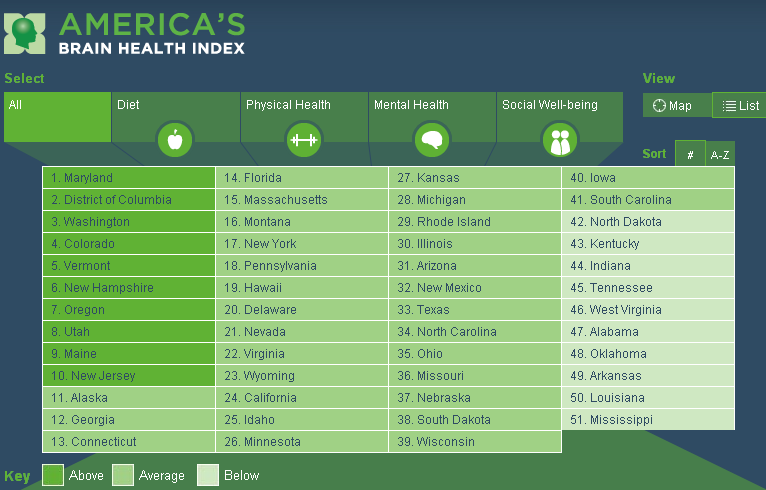More than 50% of Brain Health is up to You!
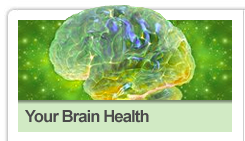 At least that is the conclusion from a review of the current state of research described on the Beautiful Minds website. The site is a educational effort by the National Center for Creative Aging and Martek Biosciences Corporation. They define brain health in terms of four dimensions:
At least that is the conclusion from a review of the current state of research described on the Beautiful Minds website. The site is a educational effort by the National Center for Creative Aging and Martek Biosciences Corporation. They define brain health in terms of four dimensions:
- The nourished mind
- The mentally engaged mind
- The socially connect mind
- The physically active mind
They have a quiz you can take to see where you stand and have even developed a brain health index for all 51 states.
As you can see Maryland is ranked #1 and Mississippi is ranked last. When you go to the site you can click on each state and get more details including an analysis of strengths and weaknesses.
All the tips they offer have been covered elsewhere on the Next Brain blog but it is useful to review them. The site also offers inspirational stories, a beautiful mind contest and resources for the healthcare professional. Check it out and let me know what is most useful.
Categories: Cognitive Decline, Diet, Lifestyle, Older Adult Tags:
Walnuts Boost Critical Thinking Skills By 11%
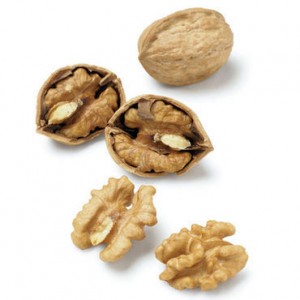 Researchers at Andrews University have found a potential connection between eating walnuts and improved critical reasoning skills in young adults. They published their findings in the British Journal of Nutrition. The bottom line:
Researchers at Andrews University have found a potential connection between eating walnuts and improved critical reasoning skills in young adults. They published their findings in the British Journal of Nutrition. The bottom line:
“Students consuming walnuts showed a significant improvement in inference after consuming one-half cup of walnuts daily for eight weeks,” says Pribis. “Walnuts will obviously not make you a critical thinker; this comes after years of studying. However, students and young professionals in fields that involve a great deal of critical thinking or decision-making could benefit from regularly eating walnuts.”
Significant improvement in this case means scoring 11% higher on a verbal inferential reasoning task. Walnuts were ground up and consumed by having two sliced of banana bread every day.
We have reported on additional claims that walnuts provide a cognitive boost elsewhere on the Next Brain blog
I am interested to hear from readers that use walnuts to improve brain function or cognitive performance. How many do you eat and how often? How do you consume them – raw or as an ingredient in some other food?
Categories: Cognitive Decline, College Student, Diet, Problem Solving Tags:
Hard Evidence that Meditation Changes our Brains
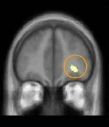 Mediation and mindfulness training is a frequent topic on the Next Brain Blog. Over the last several years we have seen studies that show a few weeks of meditation can produce measurable improvement in cognitive function and long-term practice actually makes certain brain regions larger. Now researchers at UCLA report in, Is Meditation the Push-Up for The Brain?:
Mediation and mindfulness training is a frequent topic on the Next Brain Blog. Over the last several years we have seen studies that show a few weeks of meditation can produce measurable improvement in cognitive function and long-term practice actually makes certain brain regions larger. Now researchers at UCLA report in, Is Meditation the Push-Up for The Brain?:
“… that people who meditate also have stronger connections between brain regions and show less age-related brain atrophy. Having stronger connections influences the ability to rapidly relay electrical signals in the brain. And significantly, these effects are evident throughout the entire brain, not just in specific areas.”
Changing the physical structure of the brain to preserve and enhance function and cognitive performance makes meditation a high-value training technique.
Interested to hear from readers that use any form of meditation. What technique do you use? How long have your practice? What Next Brain benefits do you see?
Categories: Cognitive Decline, Memory and Learning, Older Adult, Training Tags: meditation, mindfulness
Mental Training at the Edge but Not Over
 One reason video games are addictive is that the difficulty of play is automatically adjusted by how well you do. If you are scoring low the game becomes easier by dropping you down a level. Likewise if game play is too easy, the level of difficult increases and you are faced with a greater challenge. By dynamically adjusting the difficultly of play, you are always operating at “the edge of your seat” (or ability) and experience a rich sense of challenge and accomplishment.
One reason video games are addictive is that the difficulty of play is automatically adjusted by how well you do. If you are scoring low the game becomes easier by dropping you down a level. Likewise if game play is too easy, the level of difficult increases and you are faced with a greater challenge. By dynamically adjusting the difficultly of play, you are always operating at “the edge of your seat” (or ability) and experience a rich sense of challenge and accomplishment.
It seems that the same effect can improve brain training at least in older adults. Research reported by the Beckman Institute for Advance Science and Technology found that older adults stay engaged when the intellectual demands of a task optimally match their abilities. Furthermore they found that completing such tasks produced cognitive benefits.
“Stine-Morrow said that engagement in activities that are neither too easy nor too difficult, but push at the boundaries of one’s skill level, produces the highly pleasurable experience known as flow and that the experience of flow may be an important pathway through which older adults can stave off the declines in fluid ability that sometimes accompany aging.”
Intellectually challenging tasks include for example taking a class or reading. The key is to pick the one that keeps you in the optimal balance between challenge and reward. While the research is focused on older adults I suspect the effect works well at all ages.
I am interested to hear from readers that are able to brain train at the edge but not over. How do you adjust the difficulty level?
Source of Image: The Edge
Categories: Cognitive Decline, Lifestyle, Older Adult, Training Tags: experiential learning
Art Forms as Cognitive Enhancers?
 There is growing scientific evidence that experiencing art both passively and actively can improve brain function and cognitive performance. Art is used as a form of cognitive therapy with older adults and art training is advocated for children by some experts:
There is growing scientific evidence that experiencing art both passively and actively can improve brain function and cognitive performance. Art is used as a form of cognitive therapy with older adults and art training is advocated for children by some experts:
Michael Posner argues that when children find an art form that sustains their interest, the subsequent strengthening of their brains’ attention networks can improve cognition more broadly.
Experiencing art means experiencing beauty which is powerful emotive and intellectual stuff. There are many anecdotal claims that it enhances mental energy, creativity, improves focus and relieves stress.
Some readers of the Next Brain Blog (including myself) have reported success with a very simple art-based technique.
- Find an a new art form that deeply resonates with you. Mine turned out to be the work of Juri Morioka (see sample above).
- Acquire legal, affordable and high quality copies.
- Consciously experience it on a daily or frequent basis.
It is important to find a new art form, not one you have always liked. Also you may need to change the specific pieces you experience periodically to maintain the intensity of the cognitive effects.
Interested to hear from readers that use this or other art-based techniques to enhance brain function and cognitive performance.
Image source: Paintings by Juri Morioka
Categories: Child, Cognitive Decline, Cognitive Development, Lifestyle, Mental Focus, Older Adult, Perception Tags: art
iPhone App Brain Training Experiment
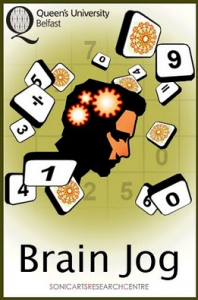 Researcher at Queen’s college worked closely with adults over 50 to develop four puzzles in a brain training app designed to improve brain health.
Researcher at Queen’s college worked closely with adults over 50 to develop four puzzles in a brain training app designed to improve brain health.
“Brain Jog is unique among similar apps in that it has come to fruition after extensive research and collaboration with the target audience to find out exactly what appeals to them. “By downloading this app, you can help us create a fantastic game experience for those over 50 and bring us one step closer to finding out whether or not brain training can help prevent cognitive decline and dementia.”
You can play Brain Jog on the iPhone, iPad or iPod. The four puzzles test and build cognition in spatial reasoning, working memory, arithmetic and verbal ability.
This is a good opportunity to get some free brain training and help shape the next version of the product.
Categories: Cognitive Decline, Software Tags: games, smart phone
How to Get Two More Years of Brain Health
 Here on the Next Brain Blog I have posted several times on the value of taking a walk for stimulating thinking, lowering stress and forestalling the effects of age-related cognitive decline. Even small amounts of walking can produce dramatic results. For example, check out the new research from University of Illinois at Urbana-Champaign that found:
Here on the Next Brain Blog I have posted several times on the value of taking a walk for stimulating thinking, lowering stress and forestalling the effects of age-related cognitive decline. Even small amounts of walking can produce dramatic results. For example, check out the new research from University of Illinois at Urbana-Champaign that found:
Walking 40 minutes three times a week on a regular basis increases the size of your hippocampus (area of brain where memories form) and effectively slows normal cognitive decline by two years in adults ages 50 to 80 years.
This is a powerful finding because normally our hippocampus decreases in volume 1-2% per year as we age.
Categories: Cognitive Decline, Lifestyle, Memory and Learning, Older Adult Tags: exercise
Does Teasing Your Brain Make it Stronger?
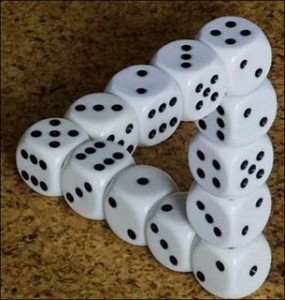 There is some evidence that we can enhance our brain function and cognitive performance by regularly solving puzzles, problems, riddles or games that tease our brain. Teasing means presenting some enjoyable mental challenge that is not too easy but not too hard.
There is some evidence that we can enhance our brain function and cognitive performance by regularly solving puzzles, problems, riddles or games that tease our brain. Teasing means presenting some enjoyable mental challenge that is not too easy but not too hard.
Classic crossword puzzles and the more recent Sudoka number-pattern puzzles are popular brain teasers. Some people love them others find them boring.
The key is to find the type of brain teaser you enjoy and enjoy it regularly.
If you have not discovered your inner brain teaser, or are shopping for new ones (always a good idea), check out Top 10 Brain Teasers and Games for Adults and Kids from Sharpbrains. You are sure to find something you like. If you do, the next challenge is find a steady supply of similar challenges.
Very interested to hear from readers that enjoy brain teasers. How do they enhance cognitive function?
Image Source: Fanpop!
Categories: Cognitive Decline, Lifestyle, Mental Focus, Perception, Problem Solving Tags: games
Beet Juice as Brain Food For Older Adults
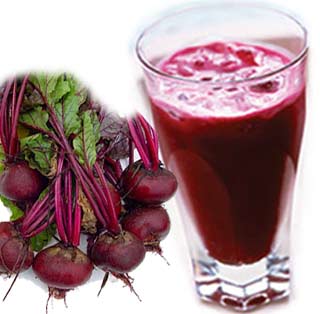 A study from Wake Forest University demonstrates for the first time that drinking beet juice (about 16 ounces a day for a week) increases blood flow to the brain in older adults. More specifically:
A study from Wake Forest University demonstrates for the first time that drinking beet juice (about 16 ounces a day for a week) increases blood flow to the brain in older adults. More specifically:
“The MRIs showed that after eating a high-nitrate diet, the older adults had increased blood flow to the white matter of the frontal lobes – the areas of the brain commonly associated with degeneration that leads to dementia and other cognitive conditions.”
Brains scans such as MRIs provide strong evidence. Beets are one food source high in nitrates others include celery, spinach and cabbage.
Interested to hear from readers that use beet juice or other high-nitrate food stuffs as part of their next brain diet.
Categories: Cognitive Decline, Diet, Memory and Learning, Older Adult Tags:
Walking 6 Miles a Week Reduces Chances of Memory Loss By Half
 We all know exercise is a good for the brain. But what types should I do, how much and what benefits can I expect? We try and answer these questions in the Next Brain Blog by looking at the latest scientific studies.
We all know exercise is a good for the brain. But what types should I do, how much and what benefits can I expect? We try and answer these questions in the Next Brain Blog by looking at the latest scientific studies.
Take for example the study published by Kirk I. Erickson in the October 13th issue of Neurology Online and reported by Web MD as Walking May Ward Off Memory Loss. The study found walking 72 blocks per week or approximately 6-9 miles early in life can actually increase the volume of grey matter in the brain and avoid shrinkage-related memory problems. Furthermore,
“Researchers say those who walked the most cut their risk of developing memory loss in half.”
This effective was found in dementia free older adults and measured over a period of nine years.
Categories: Cognitive Decline, Lifestyle, Older Adult Tags: exercise

